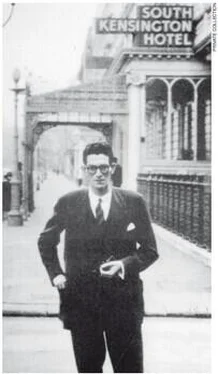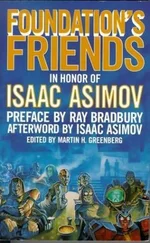Ben Macintyre - A Spy Among Friends
Здесь есть возможность читать онлайн «Ben Macintyre - A Spy Among Friends» весь текст электронной книги совершенно бесплатно (целиком полную версию без сокращений). В некоторых случаях можно слушать аудио, скачать через торрент в формате fb2 и присутствует краткое содержание. Год выпуска: 2014, ISBN: 2014, Издательство: Bloomsbury Publishing, Жанр: Старинная литература, на английском языке. Описание произведения, (предисловие) а так же отзывы посетителей доступны на портале библиотеки ЛибКат.
- Название:A Spy Among Friends
- Автор:
- Издательство:Bloomsbury Publishing
- Жанр:
- Год:2014
- ISBN:9781408851746
- Рейтинг книги:5 / 5. Голосов: 1
-
Избранное:Добавить в избранное
- Отзывы:
-
Ваша оценка:
- 100
- 1
- 2
- 3
- 4
- 5
A Spy Among Friends: краткое содержание, описание и аннотация
Предлагаем к чтению аннотацию, описание, краткое содержание или предисловие (зависит от того, что написал сам автор книги «A Spy Among Friends»). Если вы не нашли необходимую информацию о книге — напишите в комментариях, мы постараемся отыскать её.
A Spy Among Friends — читать онлайн бесплатно полную книгу (весь текст) целиком
Ниже представлен текст книги, разбитый по страницам. Система сохранения места последней прочитанной страницы, позволяет с удобством читать онлайн бесплатно книгу «A Spy Among Friends», без необходимости каждый раз заново искать на чём Вы остановились. Поставьте закладку, и сможете в любой момент перейти на страницу, на которой закончили чтение.
Интервал:
Закладка:
Angleton and Philby began to lunch regularly at Harvey’s restaurant, at first once a week, then three times a fortnight. They spoke on the telephone at least every other day. Their lunches became a sort of ritual, a ‘habit’ in Philby’s words, beginning with bourbon on the rocks and proceeding through lobster and wine and ending in brandy and cigars. Philby was impressed both by Angleton’s grasp of intelligence and his appetite for food and drink. ‘He demonstrated regularly that overwork was not his only vice,’ wrote Philby. ‘He was one of the thinnest men I have ever met, and one of the biggest eaters. Lucky Jim!’ The two men could be seen, hunched in animated conversation, talking, drinking, laughing and enjoying their shared love of secrecy. Angleton had few close friends, and fewer confidants. Philby had many friends, and had refined the giving and receiving of confidences to an art form. They fitted one another perfectly.
‘Our close association was, I am sure, inspired by genuine friendliness,’ wrote Philby. ‘But we both had ulterior motives . . . By cultivating me to the full, he could better keep me under wraps. For my part, I was more than content to string him along. The greater the trust between us overtly, the less he would suspect covert action. Who gained most from this complex game I cannot say. But I had one big advantage. I knew what he was doing for CIA and he knew what I was doing for SIS. But the real nature of my interest was something he did not know.’ Beneath their friendship was an unspoken competition to see who could out-think, and out-drink, the other. Angleton, according to one associate, ‘used to pride himself that he could drink Kim under the table and still walk away with useful information. Can you imagine how much information he had to trade in those booze-ups?’
‘Our discussions ranged over the whole world,’ Philby recalled. They spoke of the various covert operations against the Soviet Union, the anti-communist insurgents being slipped into Albania and other countries behind the Iron Curtain; they discussed the intelligence operations under way in France, Italy and Germany, and resources pouring into anti-communist projects worldwide, including the recruiting of exiles for subversion behind the Iron Curtain. ‘Both CIA and SIS were up to their ears in émigré politics,’ wrote Philby. Angleton explained how the CIA had taken over the anti-Soviet spy network established by Reinhard Gehlen, the former chief of German intelligence on the Eastern Front who had offered his services to the US after surrendering in 1945. Gehlen’s spies and informants included many former Nazis, but the CIA was not choosy about its allies in the new war against communism. By 1948 the CIA was funnelling some $1.5 million (around $14.5 million today) into Gehlen’s spy ring. Philby was all ears: ‘Many of Harvey’s lobsters went to provoke Angleton into defending, with chapter and verse, the past record and current activities of the von Gehlen organisation.’ CIA interventions in Greece and Turkey to hold back communism; covert operations in Iran, the Baltics and Guatemala; secret American plans in Chile, Cuba, Angola and Indonesia; blueprints for Allied cooperation in the event of war with the USSR. All this and more was laid before Philby, between friends, as Angleton gorged and gossiped over the starched tablecloths and full glasses at Harvey’s. ‘During those long, boozy lunches and dinners, Philby must have picked him clean,’ a fellow officer later wrote.
But Philby and Angleton were also professionals. After every lunch, Angleton returned to his office, and dictated a long memo to his secretary, Gloria Loomis, reporting in detail his discussions with the obliging MI6 liaison chief. ‘Everything was written up,’ Loomis later insisted. Philby did likewise, dictating his own memo for MI6 to his secretary Edith Whitfield, who had accompanied him to Washington from Istanbul (much to Aileen’s annoyance). Later, at home in Nebraska Avenue, Philby would write up his own notes, for other eyes.
*
Philby liked to portray the Soviet intelligence service as an organisation of unparalleled efficiency. In truth, Moscow Centre was frequently beset by bureaucratic bungling, inertia and incompetence, coupled with periodic blood-letting. Before Philby’s arrival, the Soviet spy outpost in Washington had been through a period of ‘chaotic’ turbulence, with the recall of two successive rezidents . Initially, Philby had no direct contact with Soviet intelligence in the US, preferring to send any information via Guy Burgess in London, as he had from Istanbul. Finally, four months after Philby’s arrival, Moscow woke up to the realisation that it should take better care of its veteran spy.
On 5 March a young man stepped off the ship Batory , newly arrived in New York harbour from Gdynia in Poland. His passport proclaimed him to be an American citizen of Polish origin named Ivan Kovalik; his real name was Valeri Mikhailovich Makayev, a thirty-two-year-old Russian intelligence officer with orders to establish himself under cover in New York and arrange a way for Philby to communicate with Moscow Centre. Makayev swiftly obtained a job teaching musical composition at New York University, and started an affair with a Polish dancer who owned a ballet school in Manhattan. Makayev was a good musician, and one of nature’s romantics, but he was a hopeless case officer. His bosses had supplied him with $25,000 for his mission, which he proceeded to spend, mostly on himself and his ballerina. Finally, Makayev got word to Philby that he had arrived. They met in New York, and Philby’s newly arrived case officer handed over a camera for photographing documents. Thereafter, they would rendezvous at different points between New York and Washington, in Baltimore or Philadelphia. After nine months, Makayev had managed to set up two communication channels to Moscow, using a Finnish seaman as a courier and a postal route via an agent in London. The system was slow and cumbersome; Philby was wary of face-to-face meetings, and unimpressed by his new case officer; Makayev was much more interested in ballet than espionage. Philby was producing more valuable intelligence for Moscow than at any time in his life, yet he had never been run more incompetently.
Frank Wisner, the CIA officer in charge of insurgent operations behind the Iron Curtain, was baffled: every bid to undermine communism by secretly fomenting resistance within the USSR and among its satellites seemed to be going spectacularly wrong. But Wisner – or ‘The Whiz’, as he liked to be known – refused to be downcast, let alone change tack. Despite a disappointing start, the Albanian operation would continue. ‘We’ll get it right next time,’ Wisner promised Philby.
But they did not get it right. Instead, it continued to go wrong, and not just in Albania. Funds, equipment and arms were funnelled to the anti-communist resistance in Poland, which turned out to be nothing more than a front, operated by Soviet intelligence. Anti-communist Lithuanians, Estonians and Armenians were recruited, and then dropped into their homelands by British and American planes; nationalist White Russians were sent in to continue the fight against the Bolsheviks. Almost all mysteriously disappeared. ‘We had agents parachuting in, floating in, walking in, boating in,’ said one former CIA officer. ‘Virtually all these operations were complete failures . . . they were all rolled up.’ The CIA and MI6 kept one another informed of exactly where and when their respective teams were going in, to avoid overlap and confusion. Philby, as the liaison officer in Washington, was responsible for passing on ‘the timing and geographical co-ordinates’ from one intelligence agency to another, and then another. Ukraine was considered particularly fertile ground for an insurgency, with an established resistance group active in the Carpathian Mountains. In 1949, the first British-trained team of Ukrainian insurgents was sent in with radio equipment. They were never heard of again. Two more teams followed the next year, and then three more six-man units were parachuted to drop points in Ukraine and inside the Polish border. All vanished. ‘I do not know what happened to the parties concerned,’ Philby later wrote, with ruthless irony. ‘But I can make an informed guess.’
Читать дальшеИнтервал:
Закладка:
Похожие книги на «A Spy Among Friends»
Представляем Вашему вниманию похожие книги на «A Spy Among Friends» списком для выбора. Мы отобрали схожую по названию и смыслу литературу в надежде предоставить читателям больше вариантов отыскать новые, интересные, ещё непрочитанные произведения.
Обсуждение, отзывы о книге «A Spy Among Friends» и просто собственные мнения читателей. Оставьте ваши комментарии, напишите, что Вы думаете о произведении, его смысле или главных героях. Укажите что конкретно понравилось, а что нет, и почему Вы так считаете.












